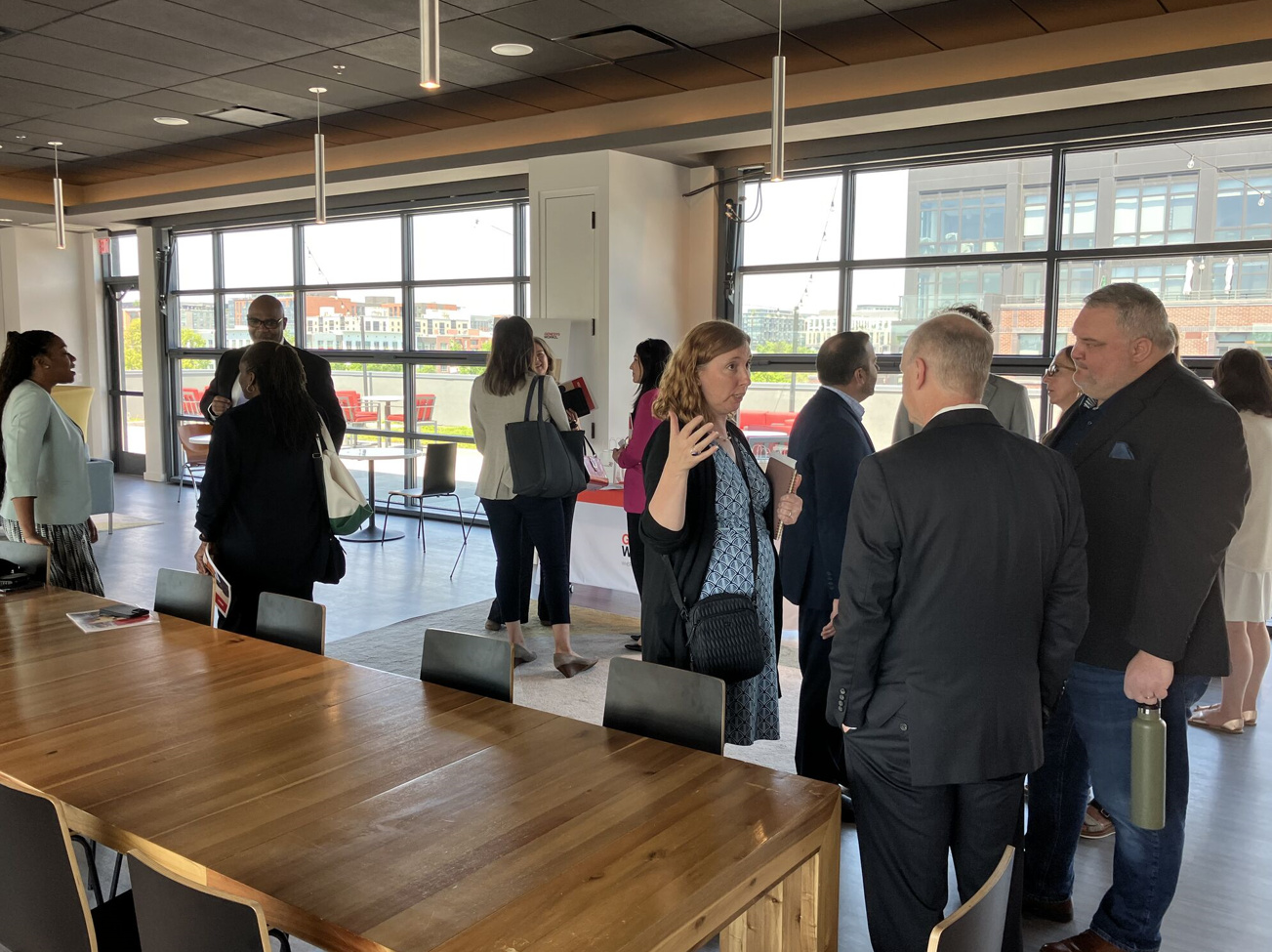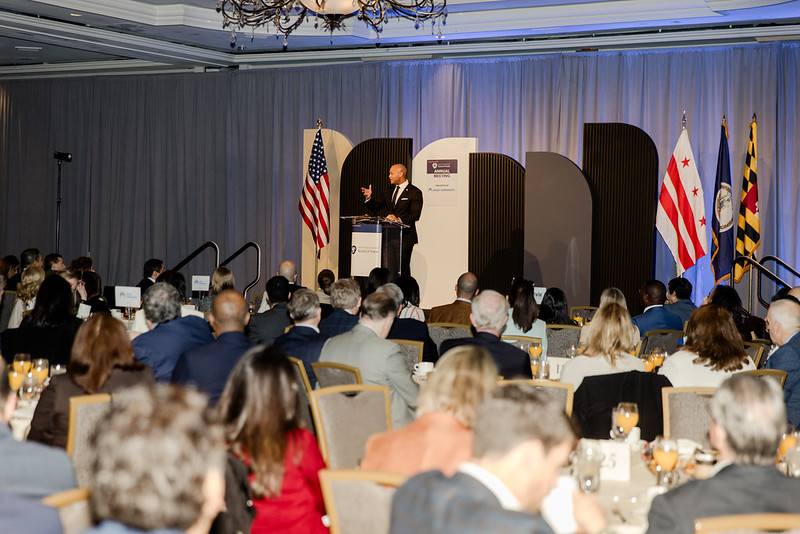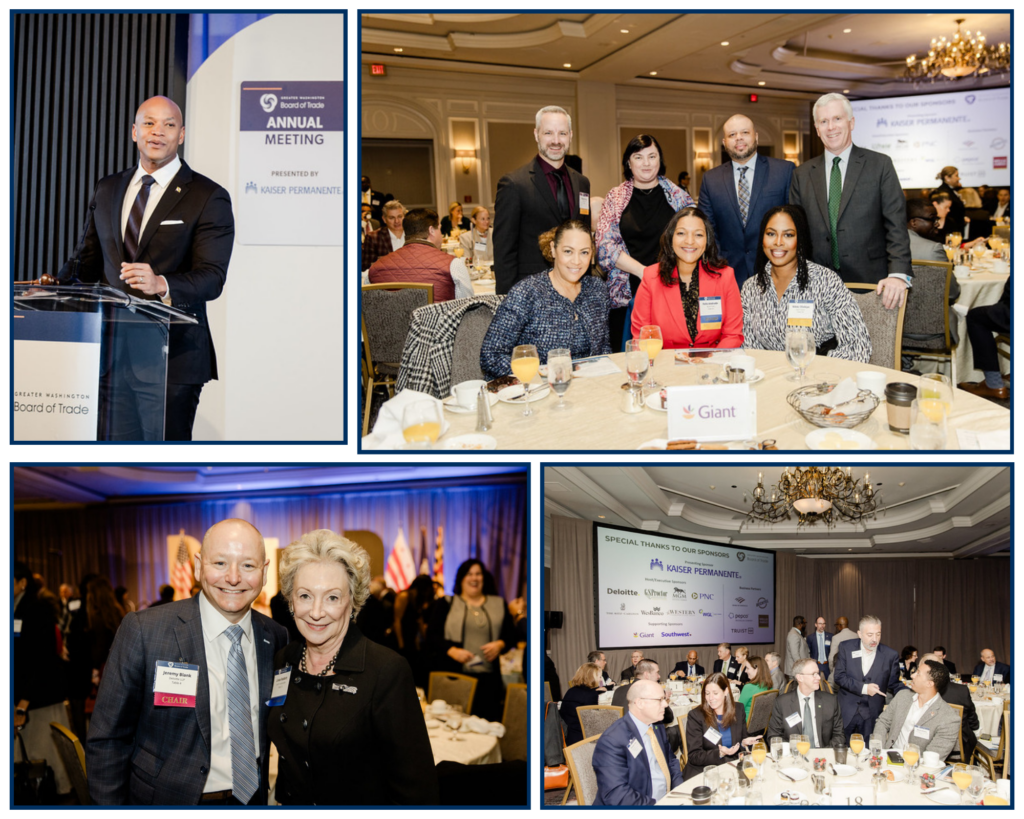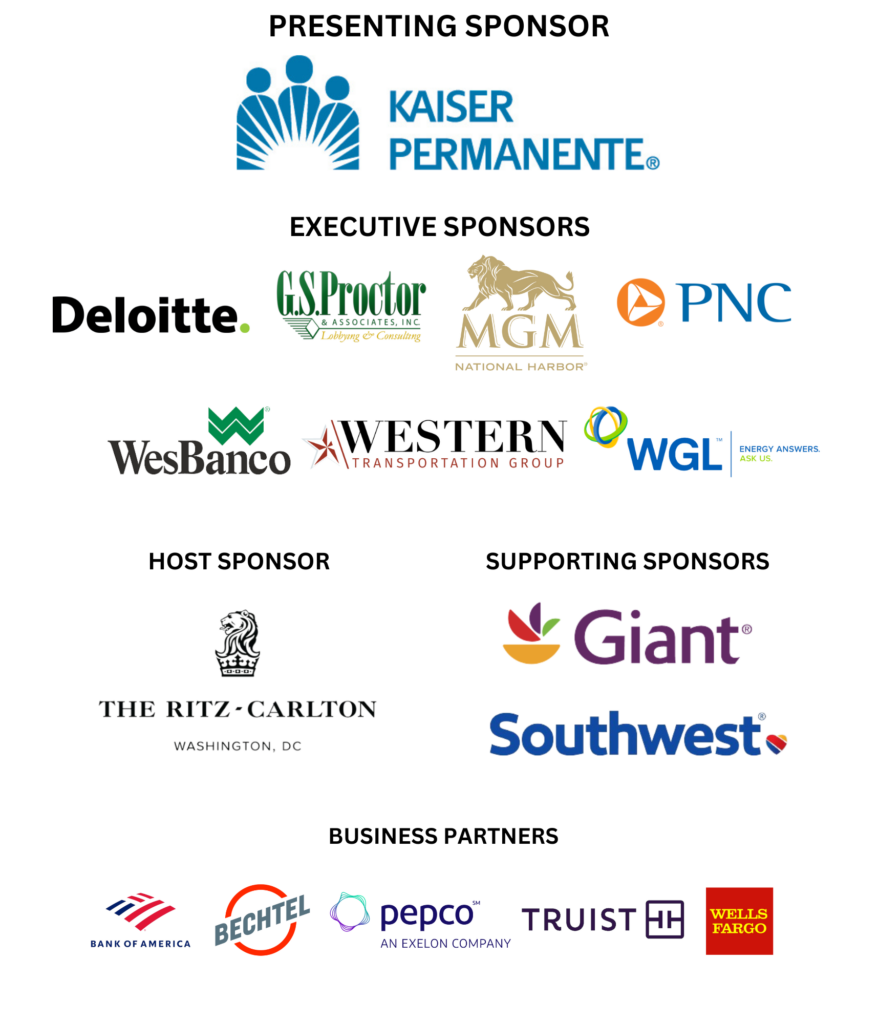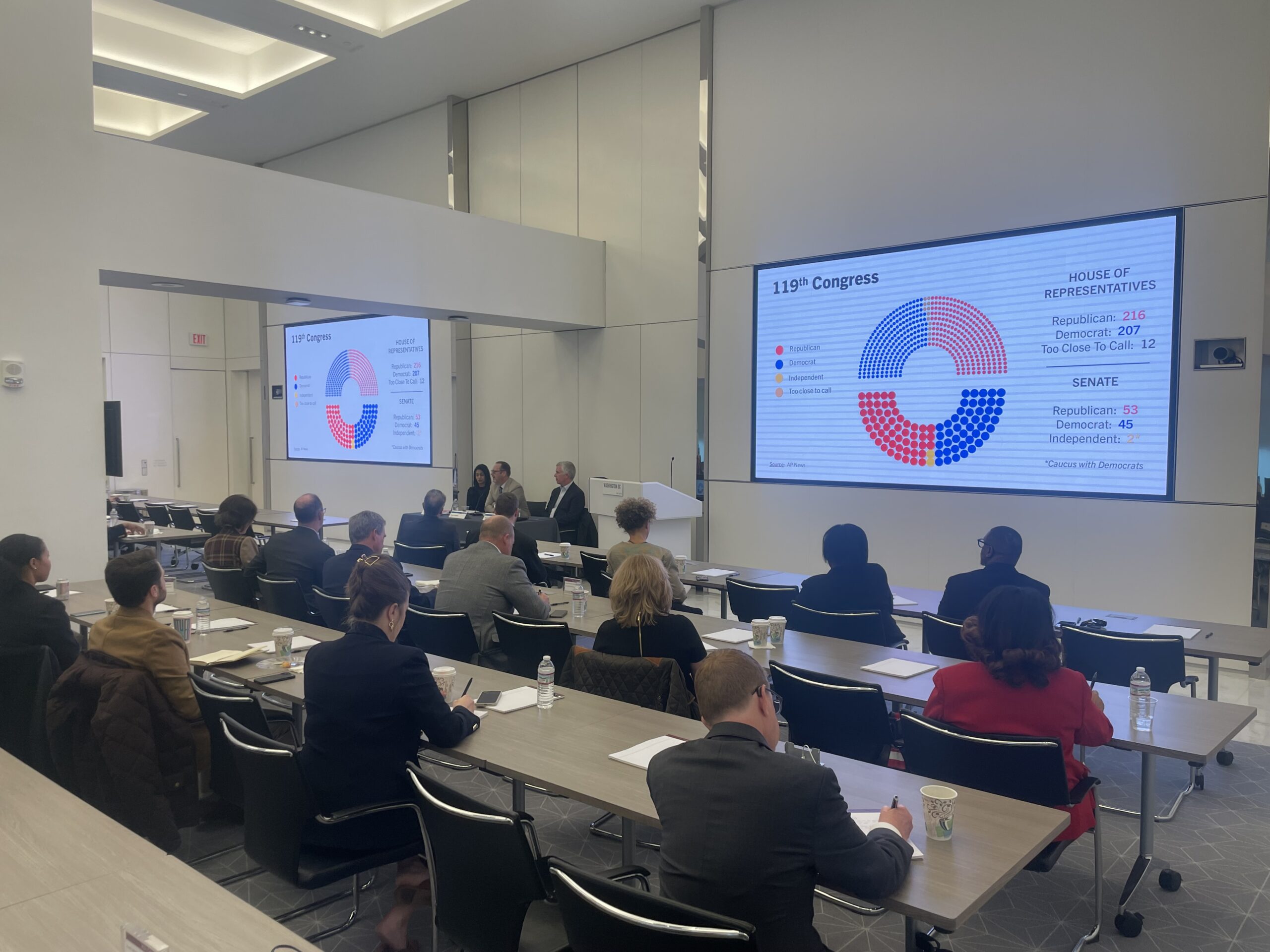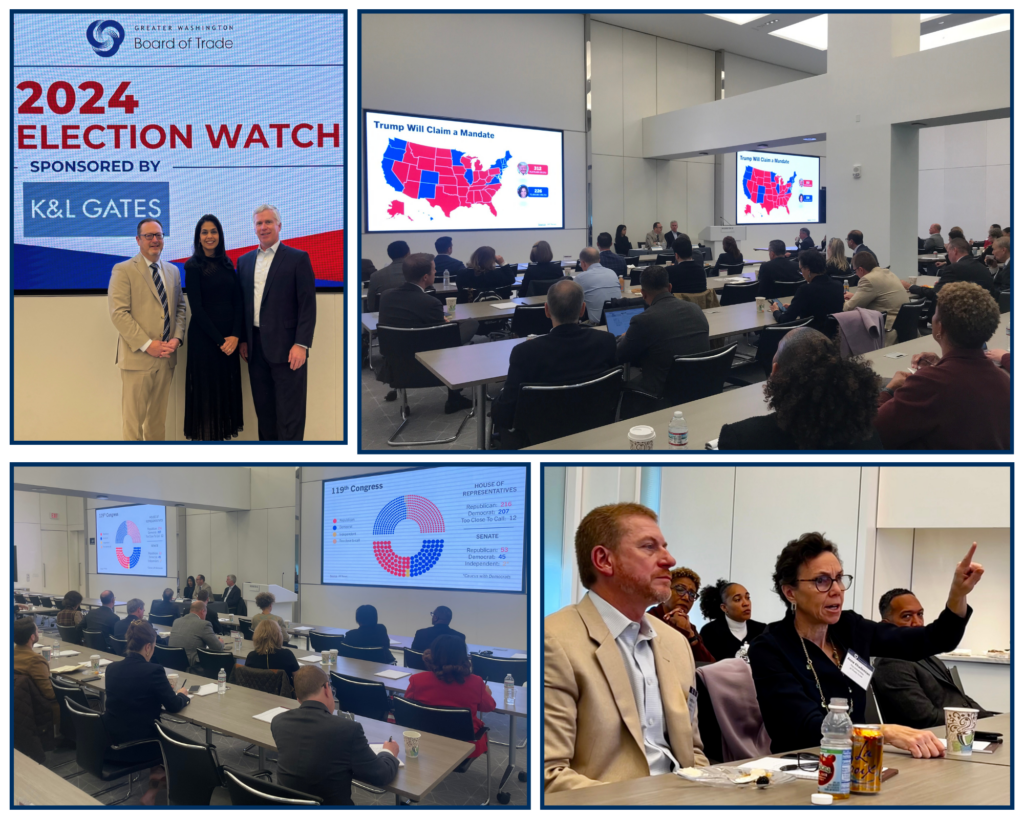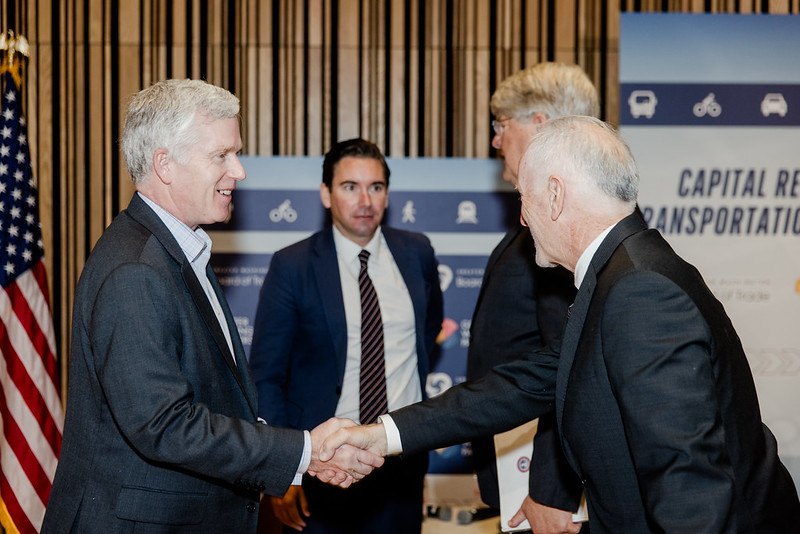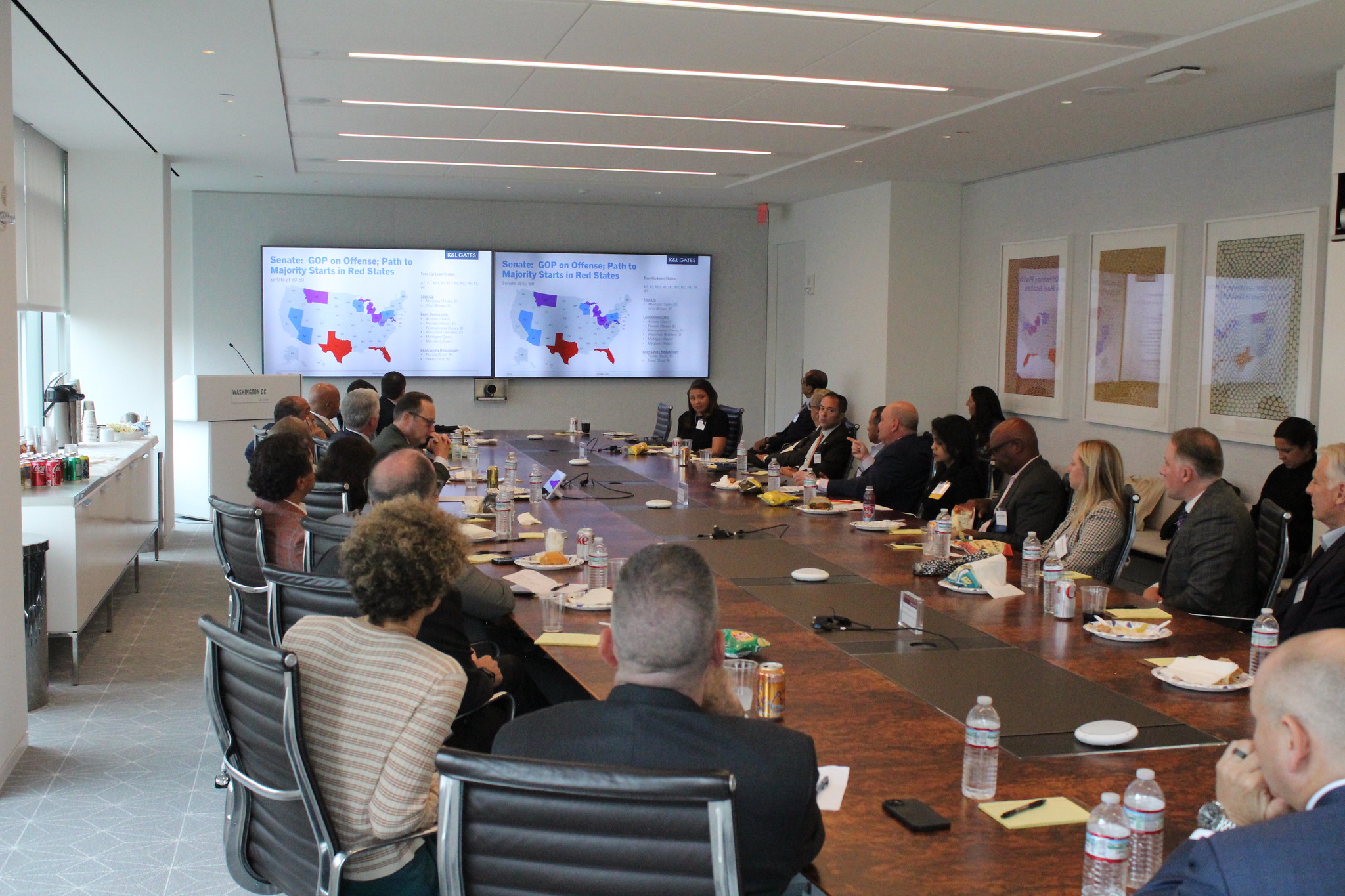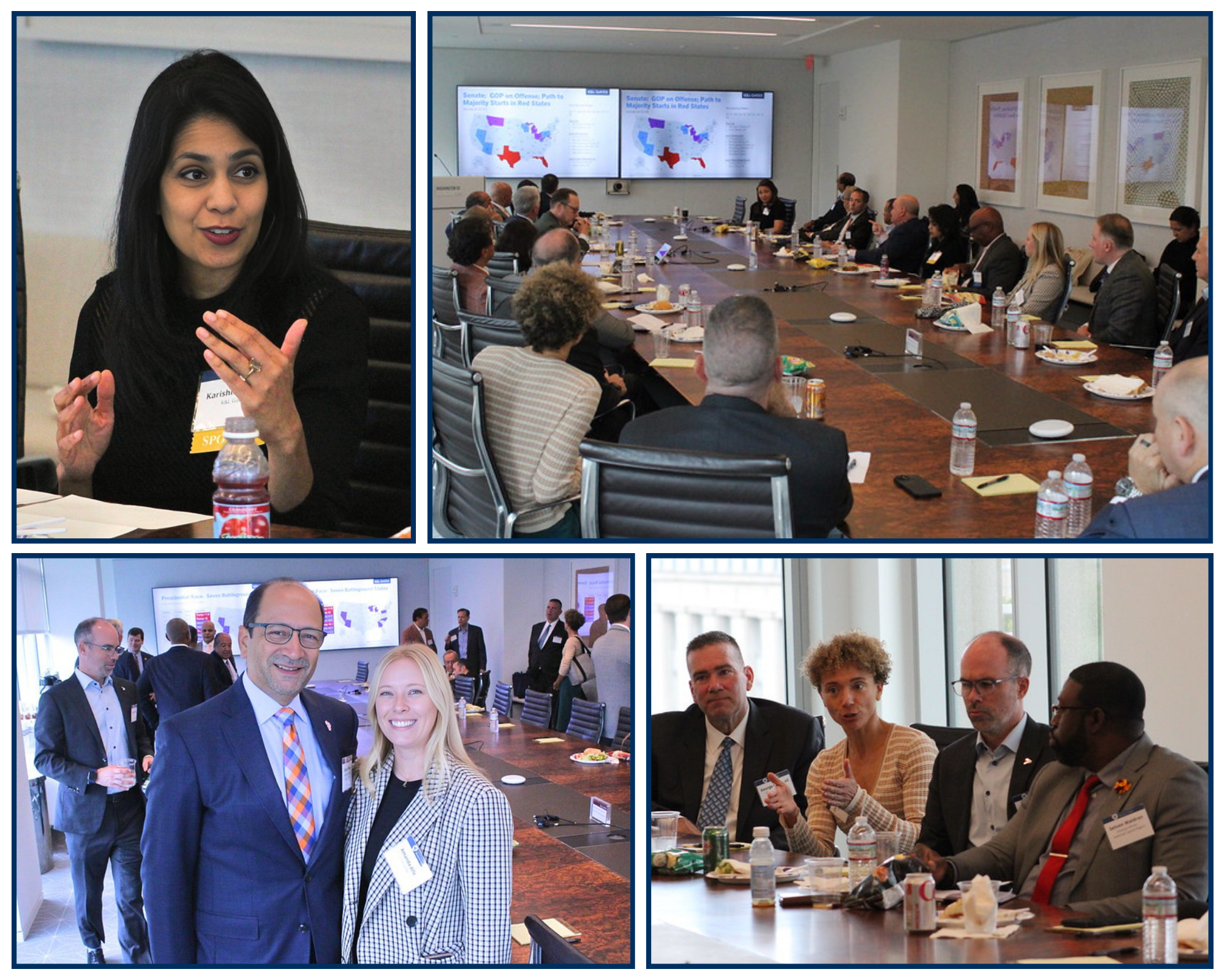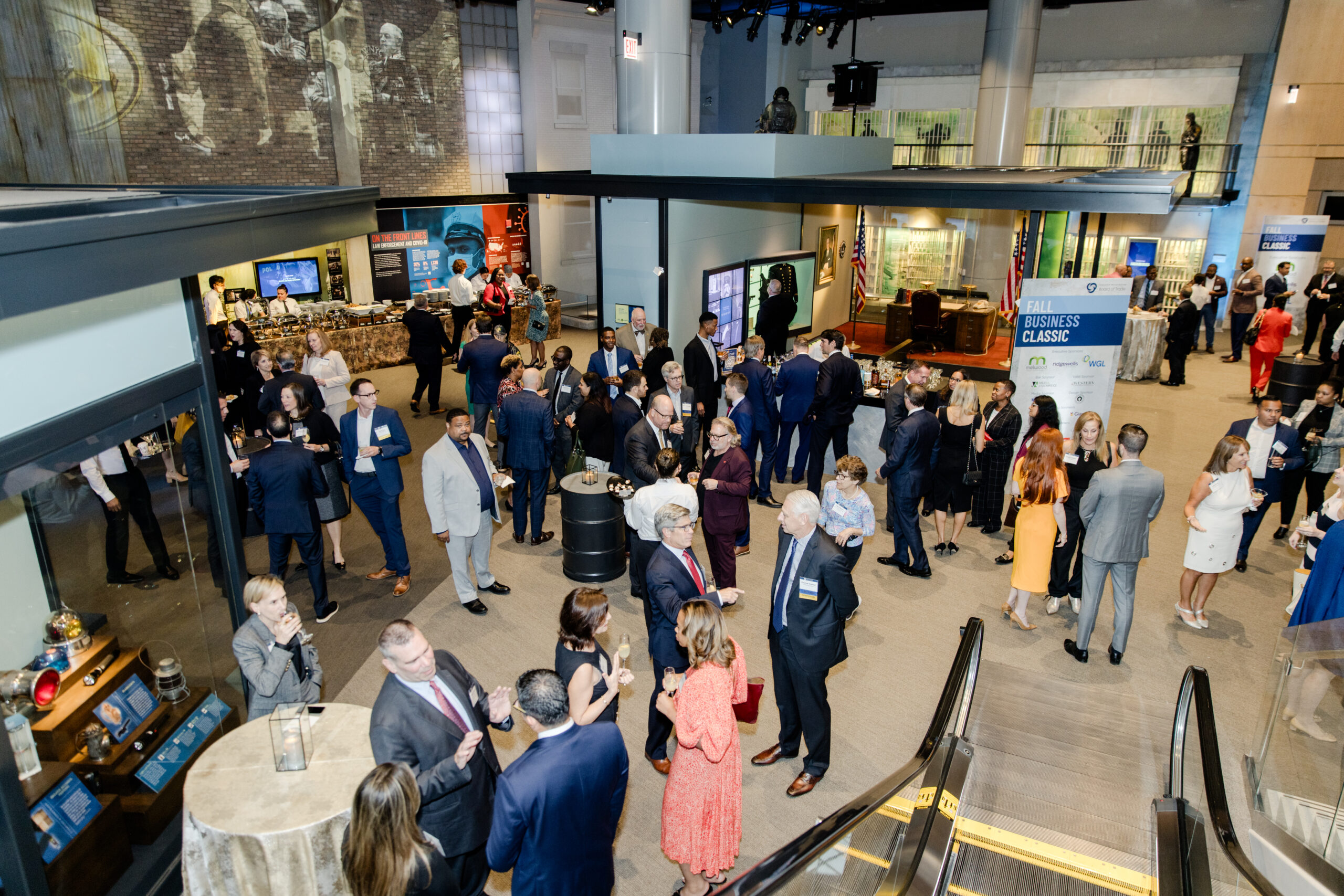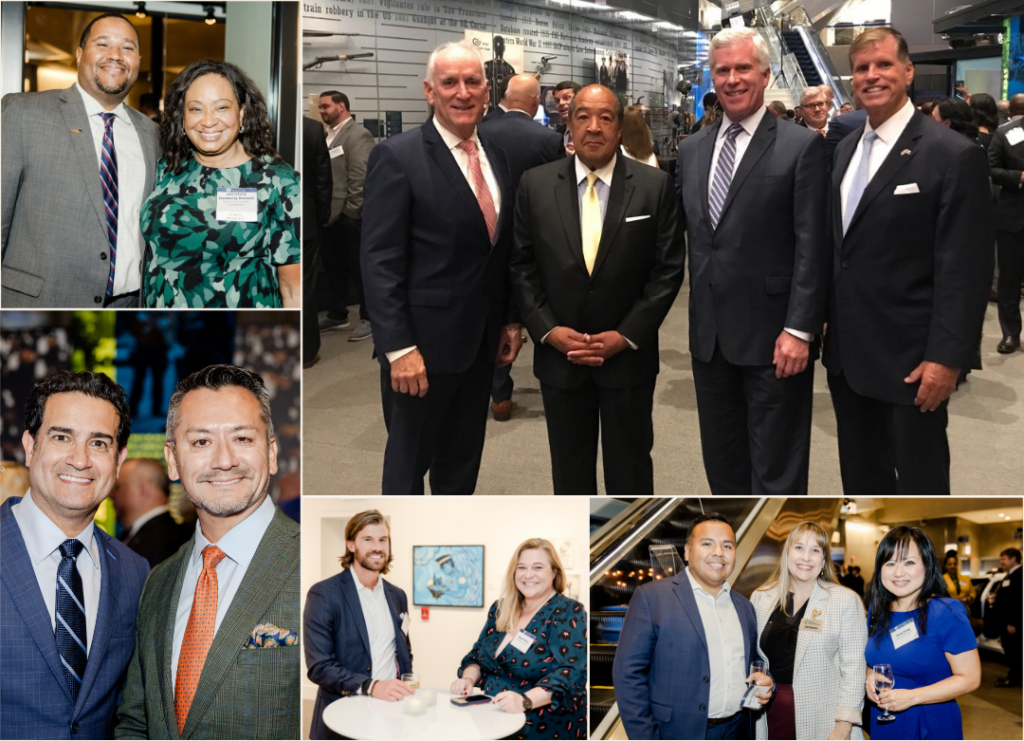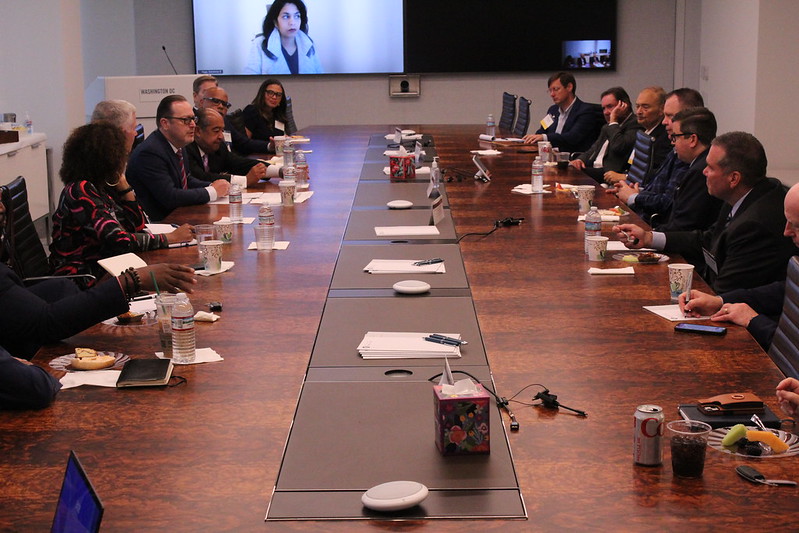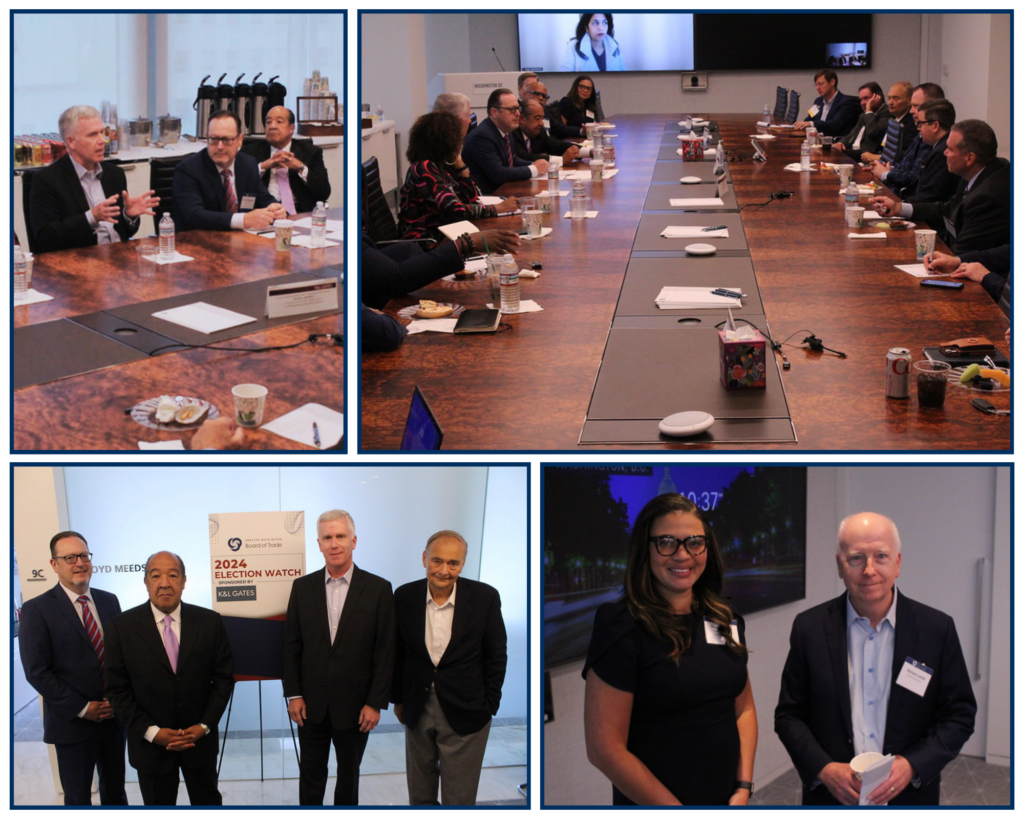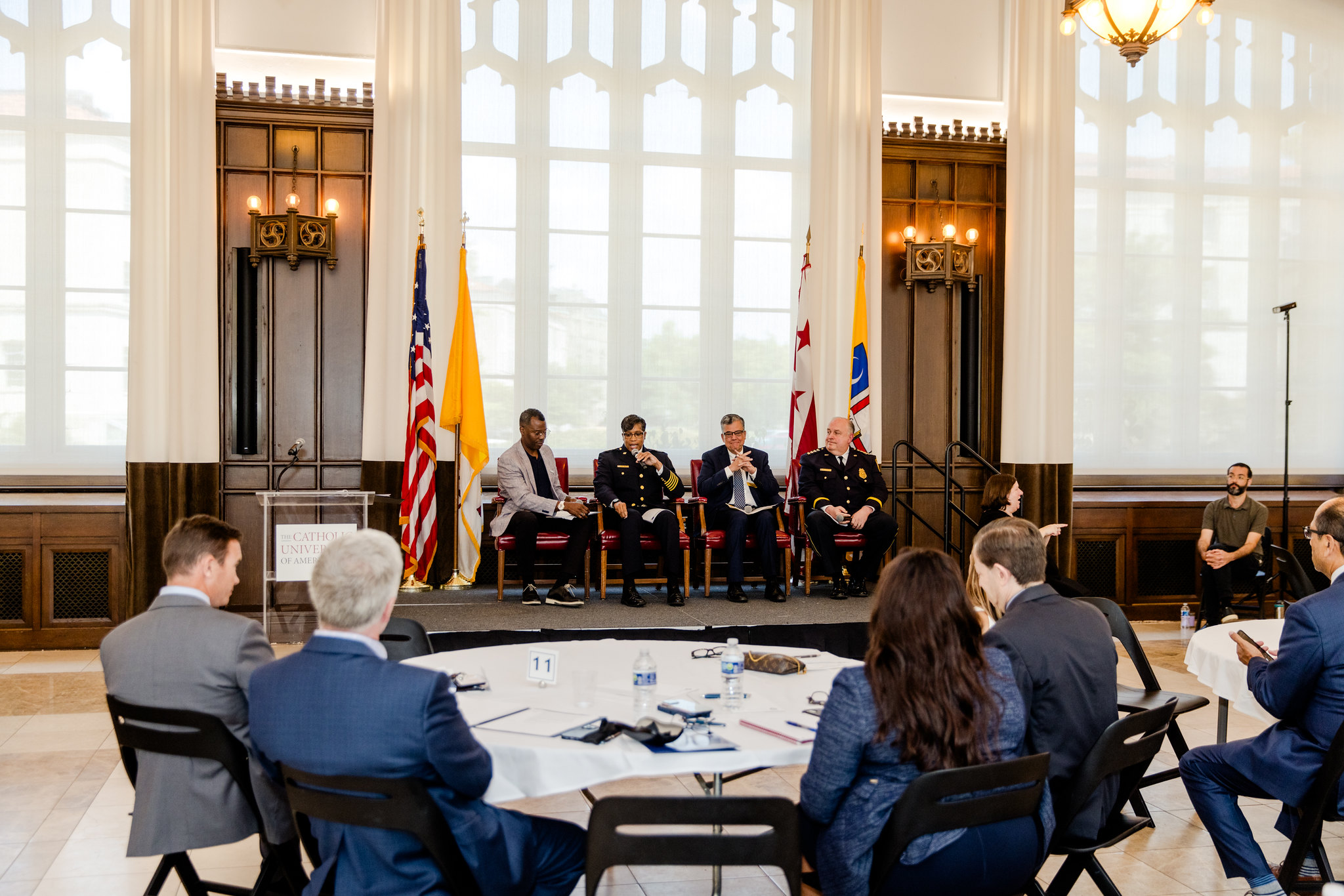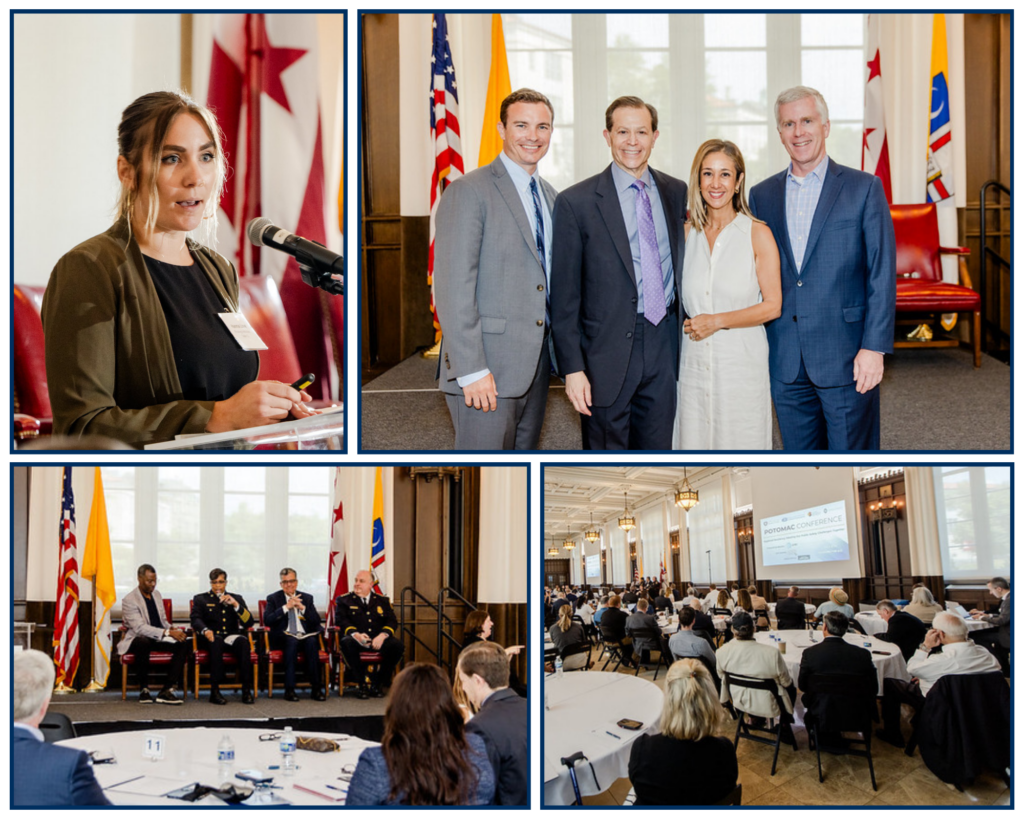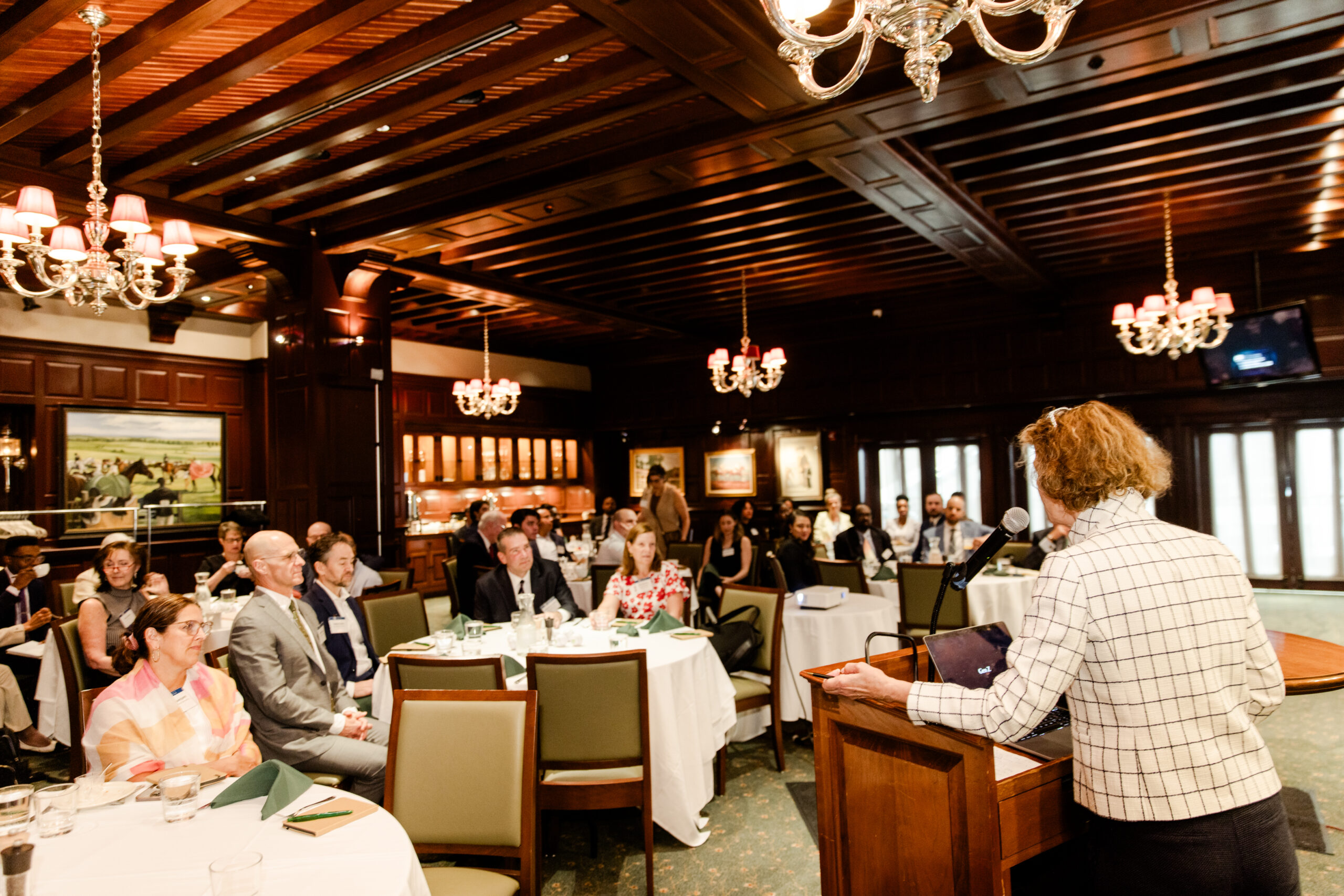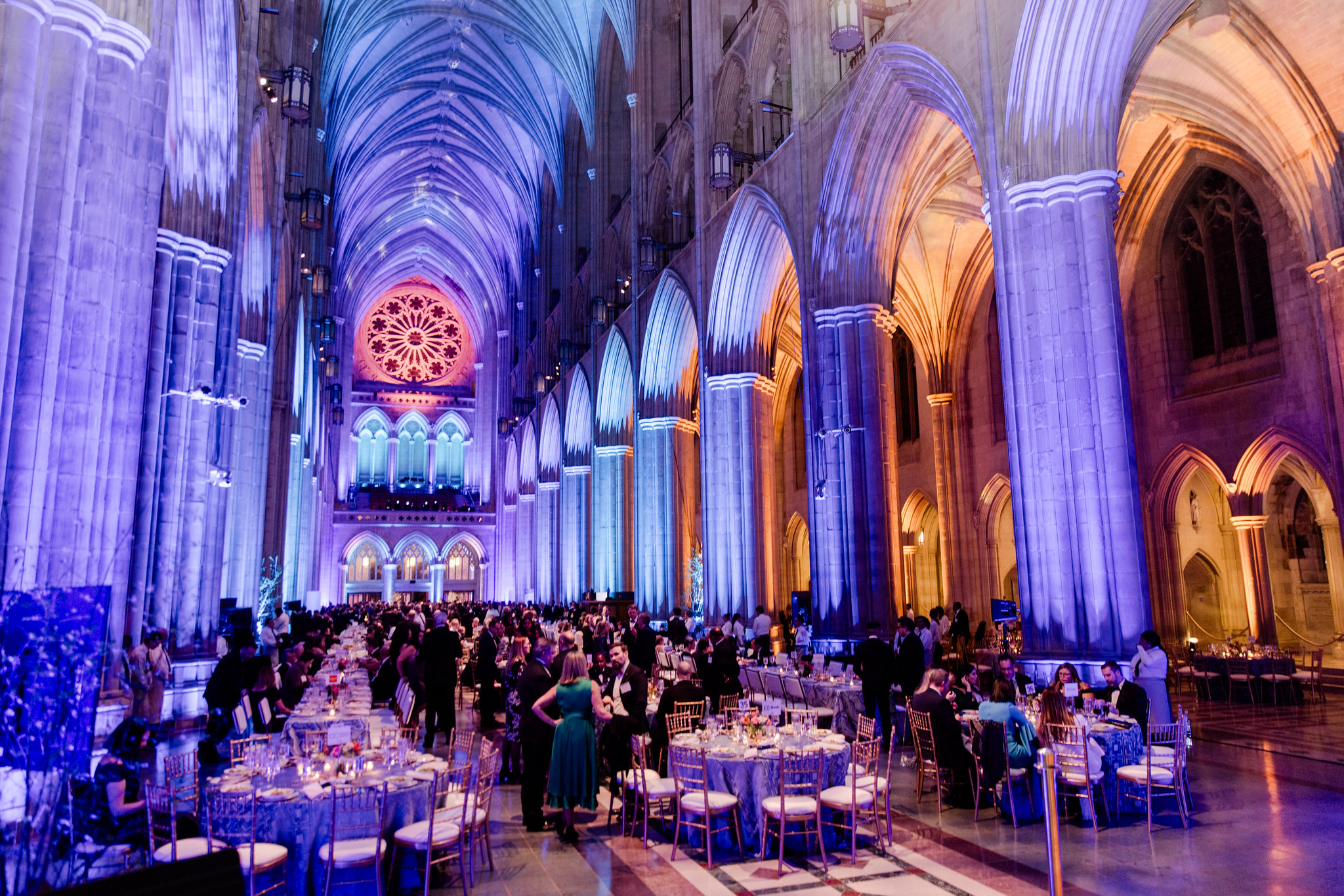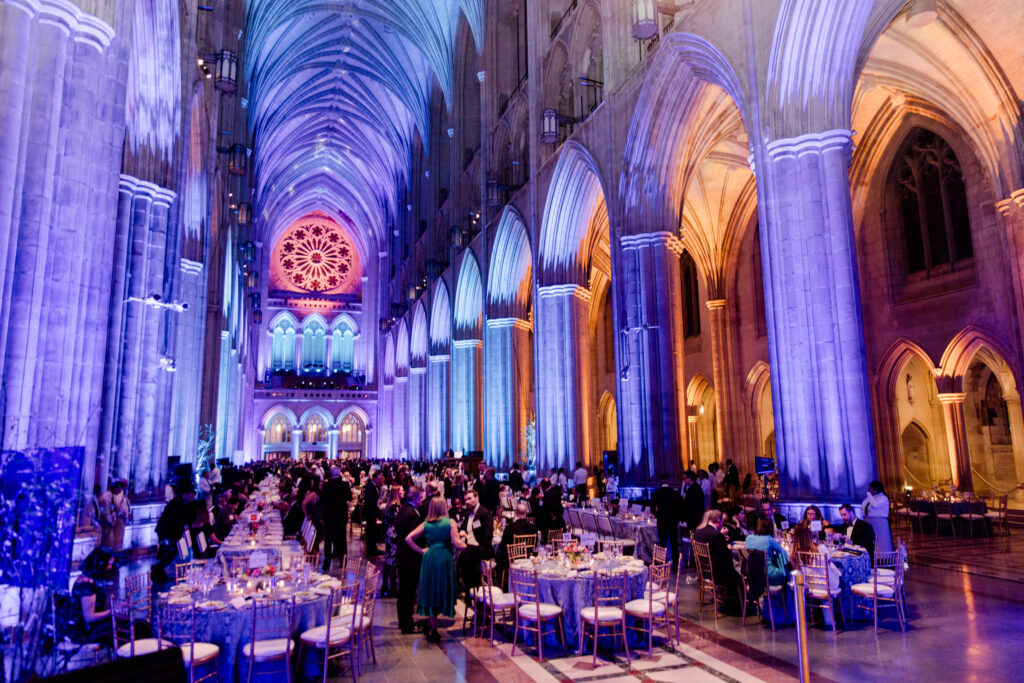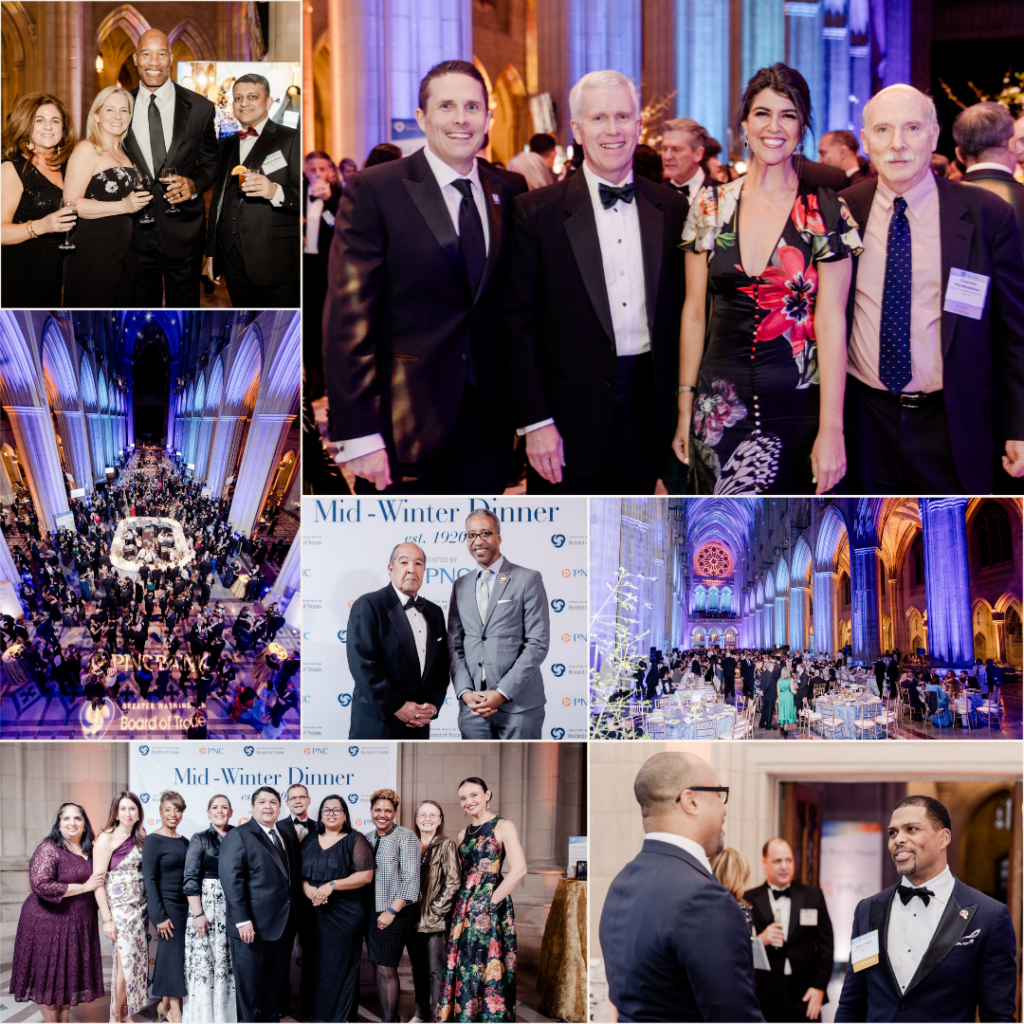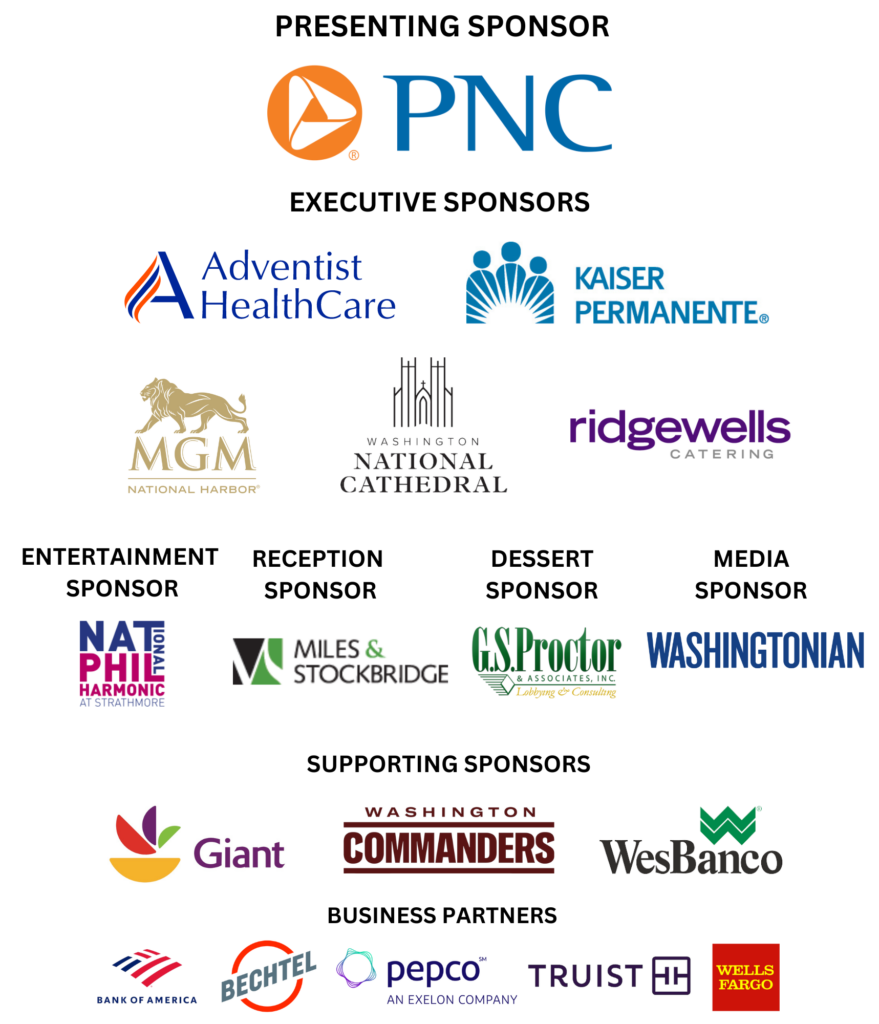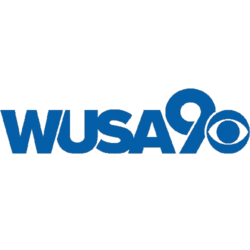In a time of rapid transformation, the Greater Washington Board of Trade has continued to bring together executive leaders across sectors to explore what it will take to shape a more resilient, competitive, and connected regional economy.
Through a series of executive lunches this spring, we’ve heard directly from those leading the charge—on the ground, in the boardroom, and across our communities. From energy and transportation infrastructure to education, capital access, and wellness, the discussions have revealed a shared urgency and a growing consensus: Greater Washington is at a defining moment, and the path forward depends on bold collaboration across business, academia, and government.
A Region Ready for Reinvention
Whether we’re talking about reshaping our education system or rethinking how we power the future, the message from leaders has been consistent: incremental change is no longer enough.
Anne Khademian, Executive Director of the Universities at Shady Grove, highlighted how public trust in higher education has declined even as workforce expectations have risen. She emphasized the need for new models that align institutional goals with learner outcomes and employer needs that bring business, government, and academia together around a shared vision for talent development.
That same spirit of shared responsibility came through in our workforce-focused conversation with Selvon Waldron, Executive Director of Genesys Works. He underscored the importance of early exposure to opportunity and the role that employers can play in building more inclusive pipelines for the next generation of talent.
Creating the Conditions for Inclusive Growth
As we navigate rising costs, new technologies, and evolving labor dynamics, the conditions that support business success are shifting.
At our session focused on capital access, we heard from market presidents of banks across the region who stressed the importance of flexible financing tools, local partnerships, and intentional strategies to direct capital where it can make the biggest impact, especially in underserved communities.
And in our lunch exploring health and wellness as a strategic business asset, Shannan Herbert, CEO of WACIF, made a powerful case for viewing wellness as a long-term investment. Not just in productivity, but in culture, retention, and community well-being.
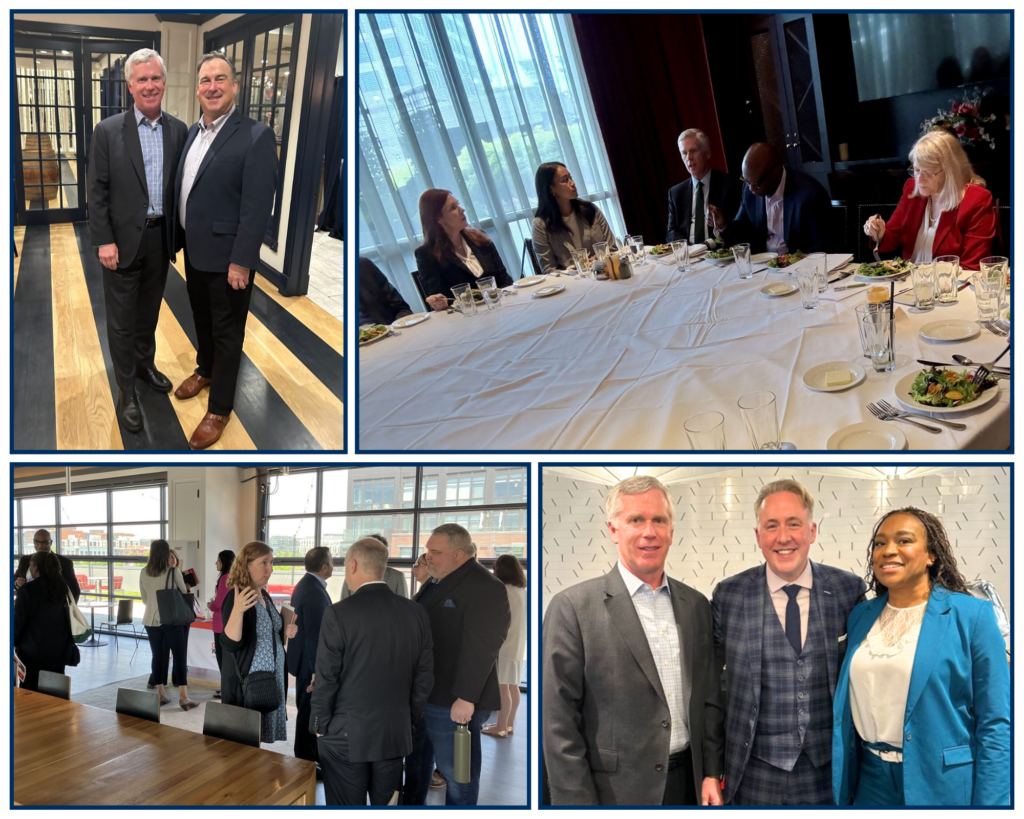
Catalyzing Regional Momentum
Across these conversations, the role of infrastructure—physical and institutional—has been front and center. At our session on the economic impact of sports, JJ Rivers of Gensler shared how thoughtful sports development projects can revitalize neighborhoods, generate new business activity, and help rebrand DC as a premier destination for both fans and investors. Projects like the Capital One Arena redevelopment are not just entertainment upgrades—they are economic engines.
And in our session on regional mobility, hosted in partnership with United Airlines, we explored how connectivity—from airports to data systems—drives business growth, talent movement, and broader economic sustainability.
Leading Through Change
We’ve also heard directly from executives navigating change in real time. Conversations on leadership, innovation, and economic resilience made clear that today’s environment demands more than strategic planning, which calls for adaptability, transparency, and the ability to unify teams and stakeholders around a shared purpose.
What’s Next
Greater Washington has the talent, institutions, and access to lead on the national and global stage but doing so will require us to align more deeply, act more boldly, and collaborate more consistently. These executive lunches aren’t just about sharing insights; they’re about catalyzing action.
We’ll continue bringing leaders together to shape what’s next for our region, our economy, and our shared future.
Thank you to Genesys Works and United Airlines for sponsoring lunches that highlight these important discussions and help to shape the dialogue.
